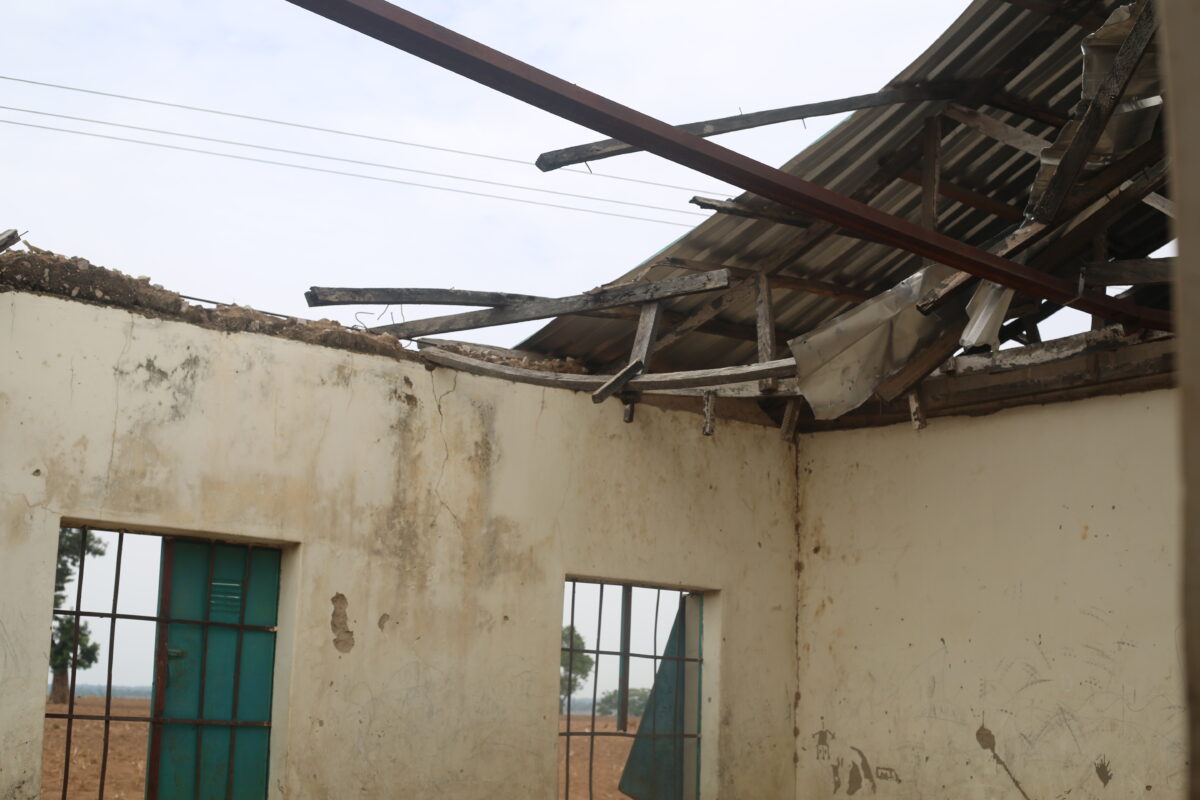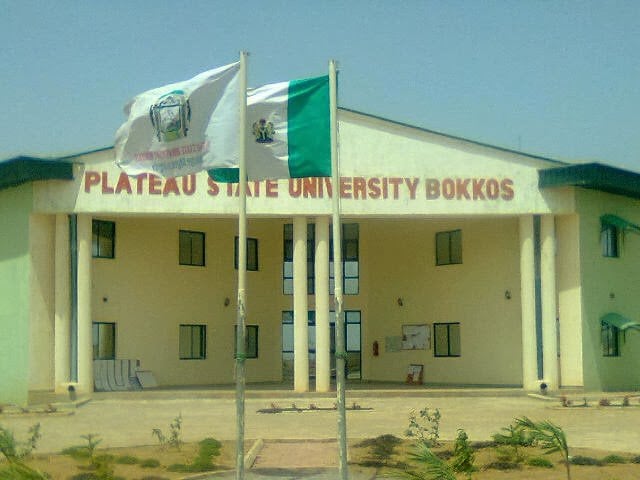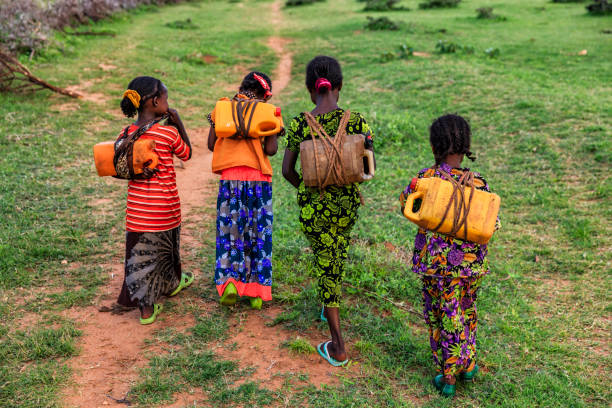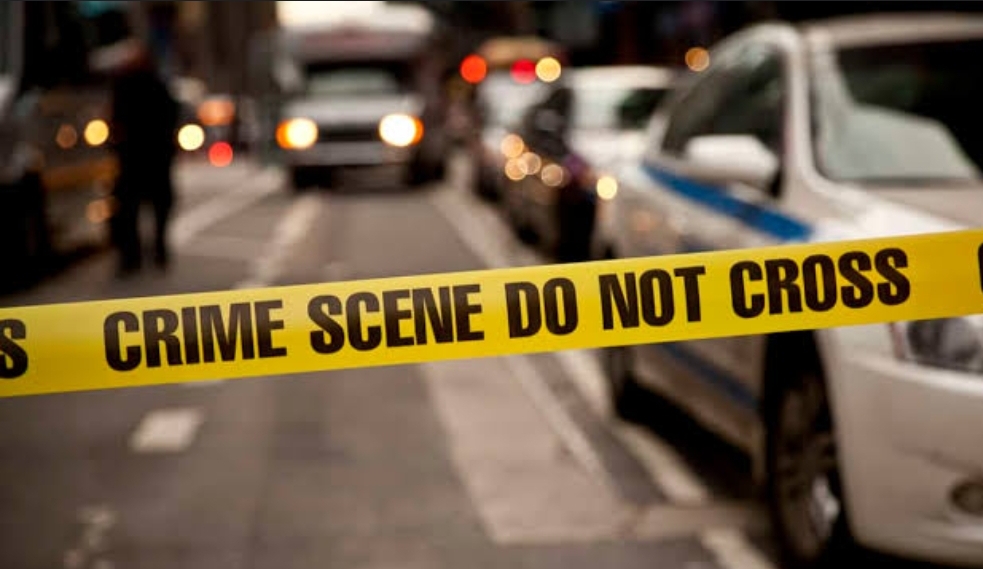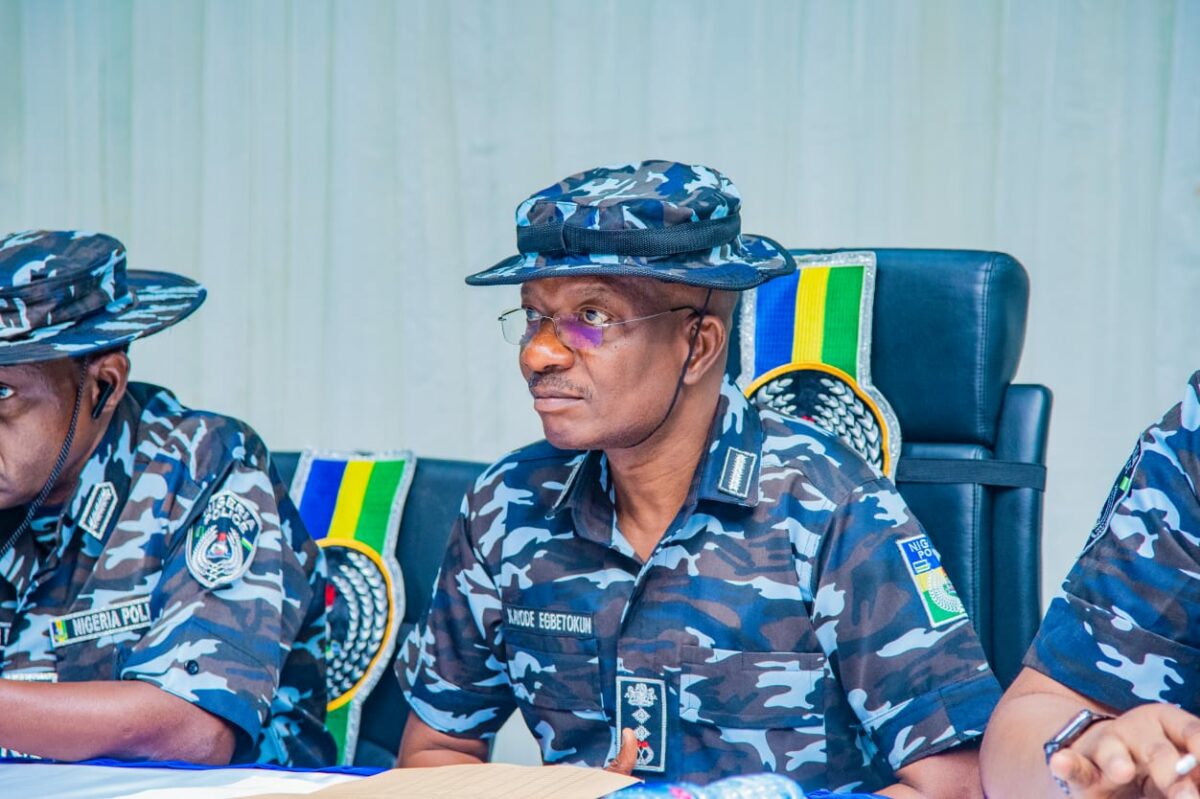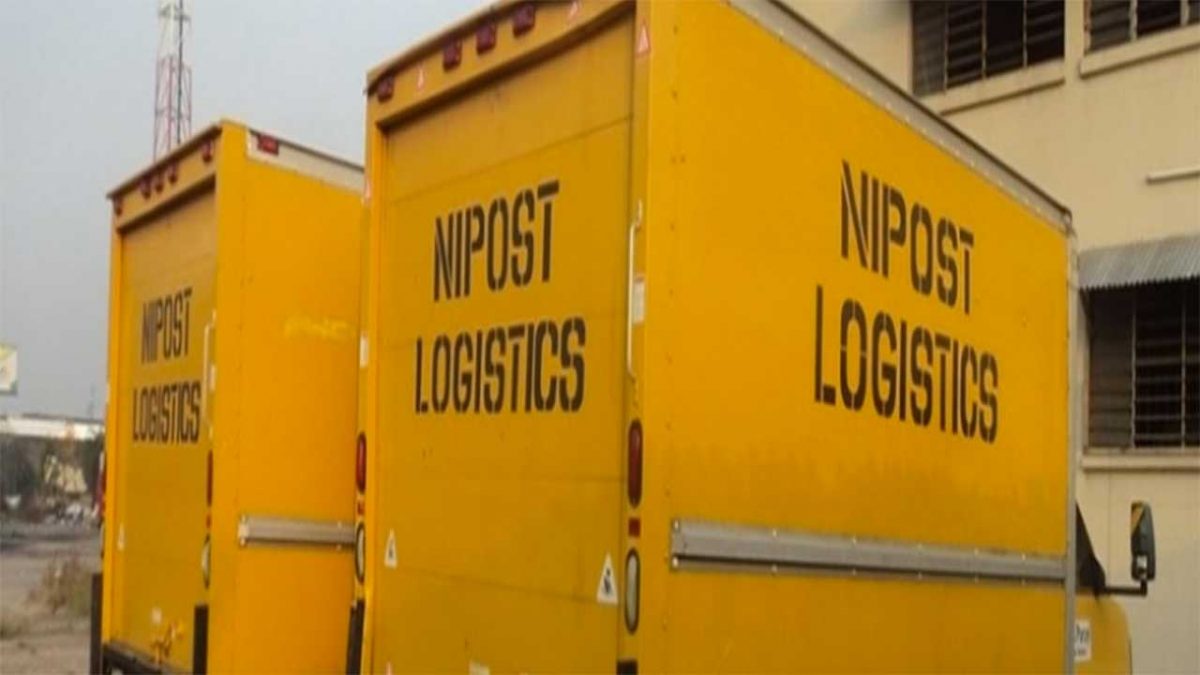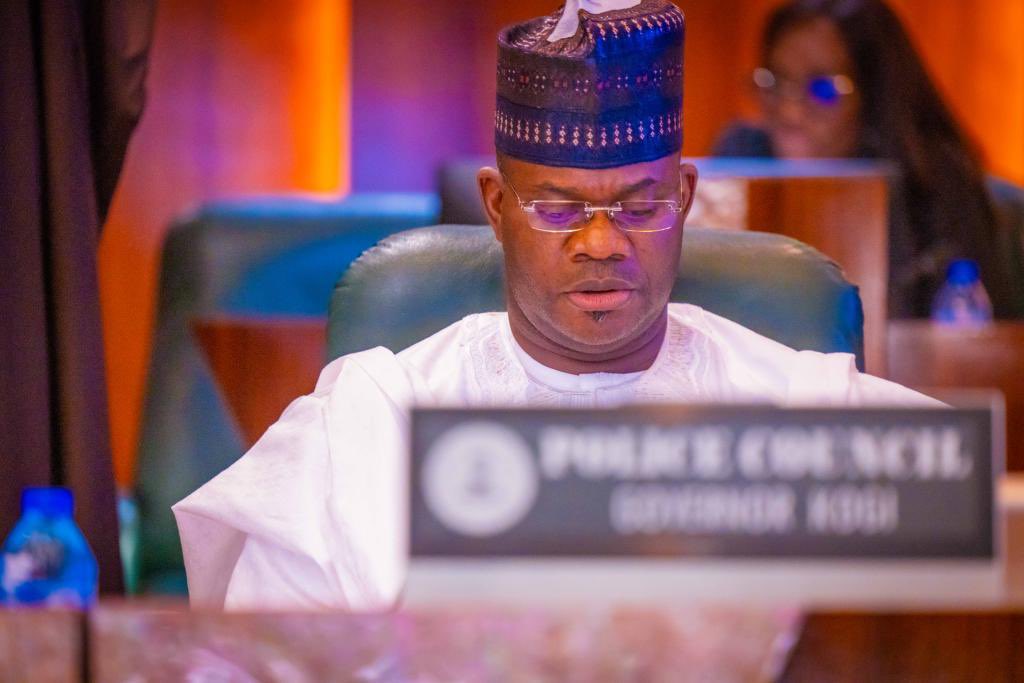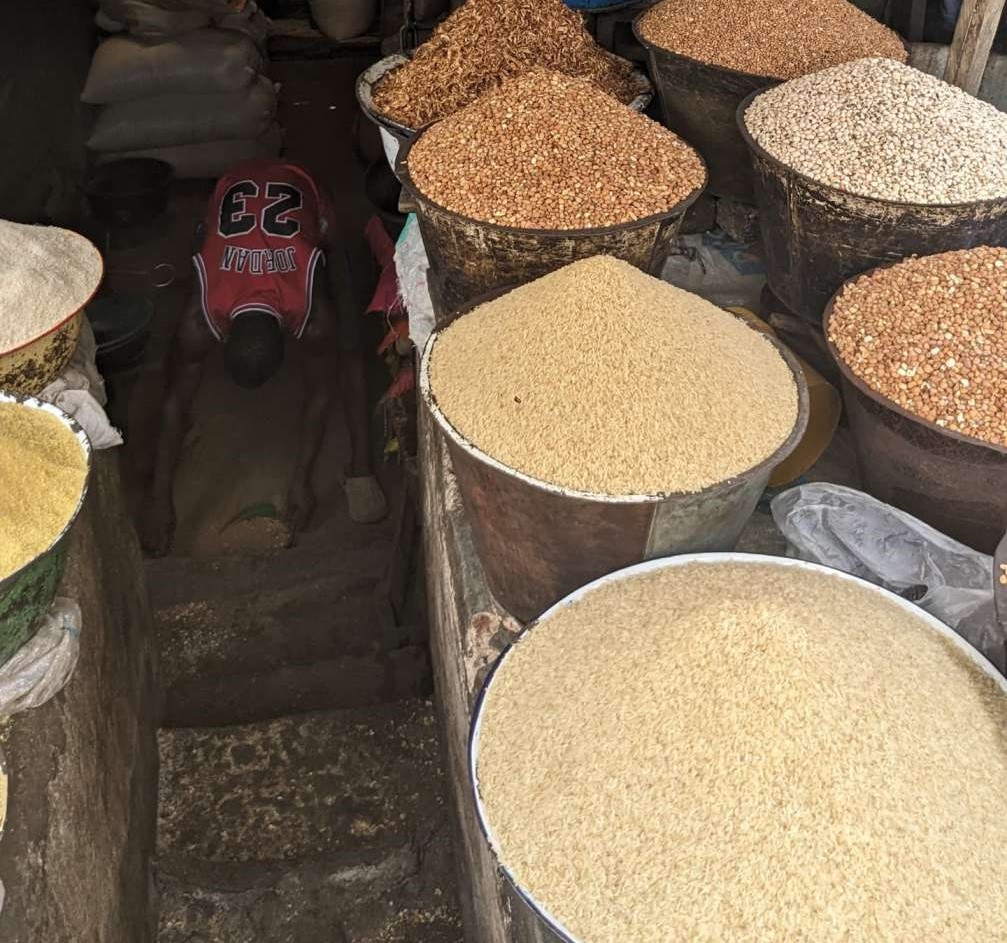In 2020, the Universal Basic Education Commission (UBEC) published a report on the basic education statistics of states in Nigeria. According to this report, Kano State was home to 989,234 of 10.2 million out-of-school children in the country. It was the state with the single highest number of out-of-school children in the country. Annually, its government allocates over 20 percent of its budget to education, but failed contracts and poor infrastructure continue to harm the sector. Investigative journalist DANIEL OJUKWU probed the anomalies.
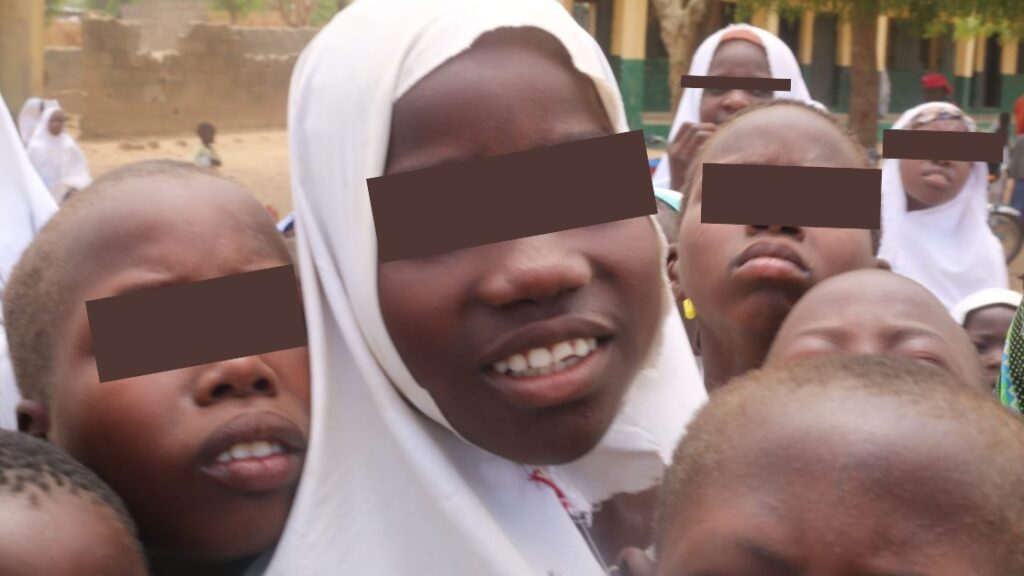
“I want to become a teacher in this school because there are no teachers here,” Simbiat Abdullah (not real name), a Basic 6 pupil in Kanwa Primary School, Warawa Local Government Area, Kano State, told FIJ.
She donned a white hijab on a green uniform and wore an innocent smile. She was one of hundreds of other pupils playing under a tree when our reporter arrived at Kanwa.
It was a Monday morning. Abdullah and her schoolmates were playing loudly under a tree in the school’s compound at a time children her age across the world were in class. Sanusi Jafar, her headmaster, went about his business in his office.
FIJ would later learn that Kanwa Primary School only had two teachers: the headmaster and one other, but only the headmaster was on the premises on this day.
Like Abdullah, Mohammed Malami was a Kanwa pupil with lofty aspirations. Malami told FIJ that he wanted to become a doctor but did not have any reasons for wanting to become one.
“Our school opens at 8 am and closes at 1 pm. When I go home, I cut grass and fetch water,” he told FIJ.
The children shared their dreams and aspirations with us, and some things quickly became obvious: they were all from very poor backgrounds, they struggled to comprehend English, and the poor education they received was no fault of theirs.
When FIJ arrived in Kanwa, the pupils were overjoyed. Our reporter did not get the chance to introduce himself before they gathered around him, eagerly chattering in Hausa, their native tongue.
There was no plan in place for class activities at that time or in the coming hours. They had come to school simply to pass time until 1pm.
Umar Ganduje, Governor of Kano State, is one of only six governors in the nation to possess a doctoral degree. For the pupils at Kanwa Primary School, this is a dream they can only aspire to.
FOOD DONATIONS BRING STUDENTS TO SCHOOL, WATER SCARCITY TAKES THEM BACK
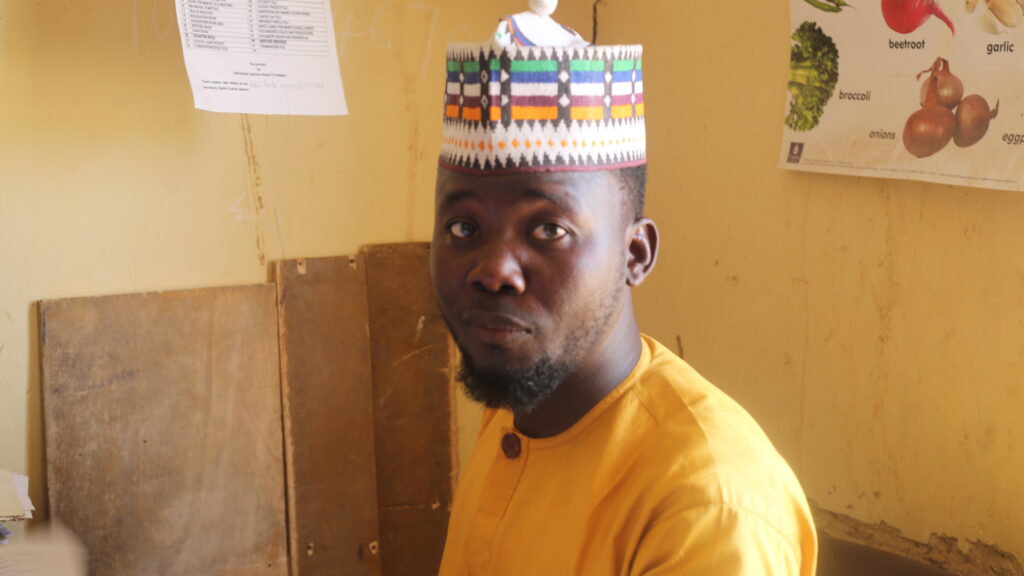
In one of the rooms of the school’s buildings was the headmaster, but he had some of the limitations the pupils had.
During the interview with FIJ, he first spoke with our reporter in English, but soon gave up and asked instead to be interviewed in Hausa as he struggled with the English Language. With the help of Lukman Mohammed, our fixer, we obliged.
Jafar revealed the school was not getting enough funding from the state government but was relying on aid from non-governmental organisations.
“Sometimes, NGOs fund us. We collect food, materials and others. Actually, there’s a problem in this sector,” Jafar told FIJ.
He said the community was suffering from a water shortage and a lack of electricity supply, claims FIJ would later verify to be true. As a result, over 500 pupils were absent when our reporter visited.
“Both boys and girls trek to Warawa and Jarawa to fetch water. I can’t say anything pertaining this problem and I can’t say if it’s the government’s problem, but there is a problem,” Jafar said.
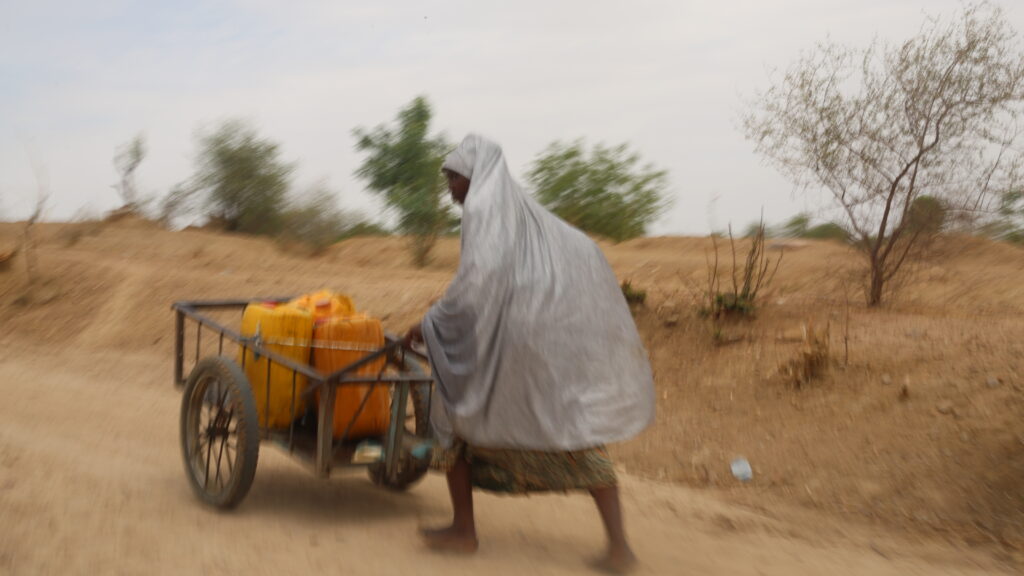
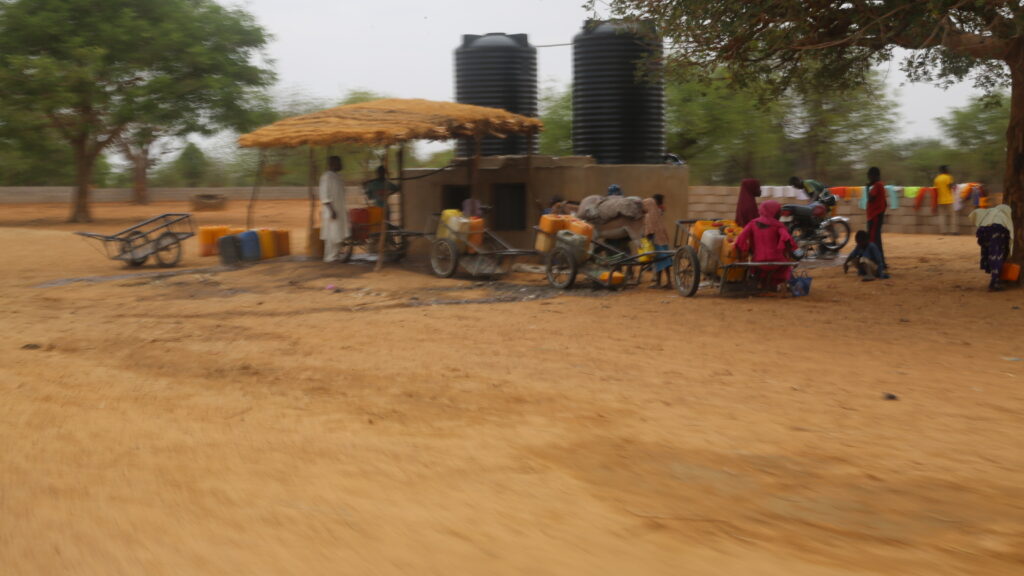
“The residents don’t take the issue seriously. At least someone can volunteer and dig boreholes for sale. There are children dropping out of school. Most times, the students come to school due to the feeding, but if this is not available, attendance is discouraging.
“We have problems such as the lack of teachers, refreshments, and a sports field. When I assumed duty here, this school had only one block, so we thought of how we could develop the community, and liaised with the state government, councilor and LGA chairman. In the end, a block of three classrooms was built.
“The repair of the toilet came from a collaboration of the Parents and Teachers Association (PTA). We contributed until our funds were exhausted. We are calling unto the government to help the education system.”
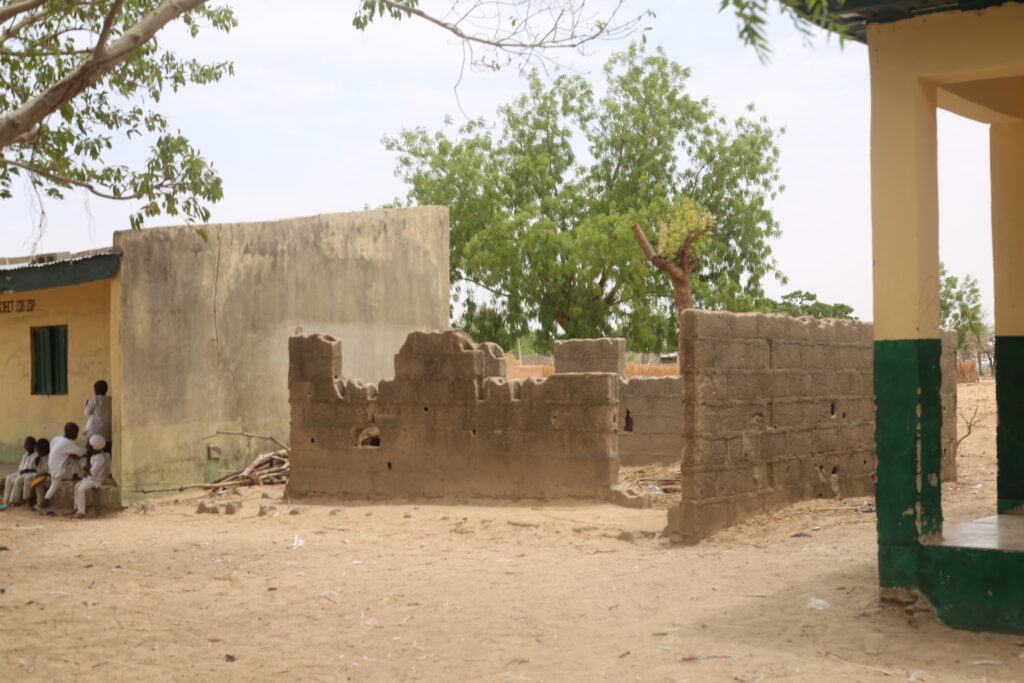
Jafar told FIJ that he suspended teaching for the day because he was working on an application for a Global Partnership for Education (GPE) intervention and had been holed up in his office for two days preparing the paperwork.
FIJ found that a contract was awarded to Black Gold Construction Ltd. to build a block of three classrooms. It was sponsored by Bala Mustapha Dawaki, member of the House of Representatives representing Dawaki Kudu/Warawa Federal Constituency.
At the time our reporter visited Kanwa Primary School, the project had been completed, but on close inspection, the classrooms were falling apart.
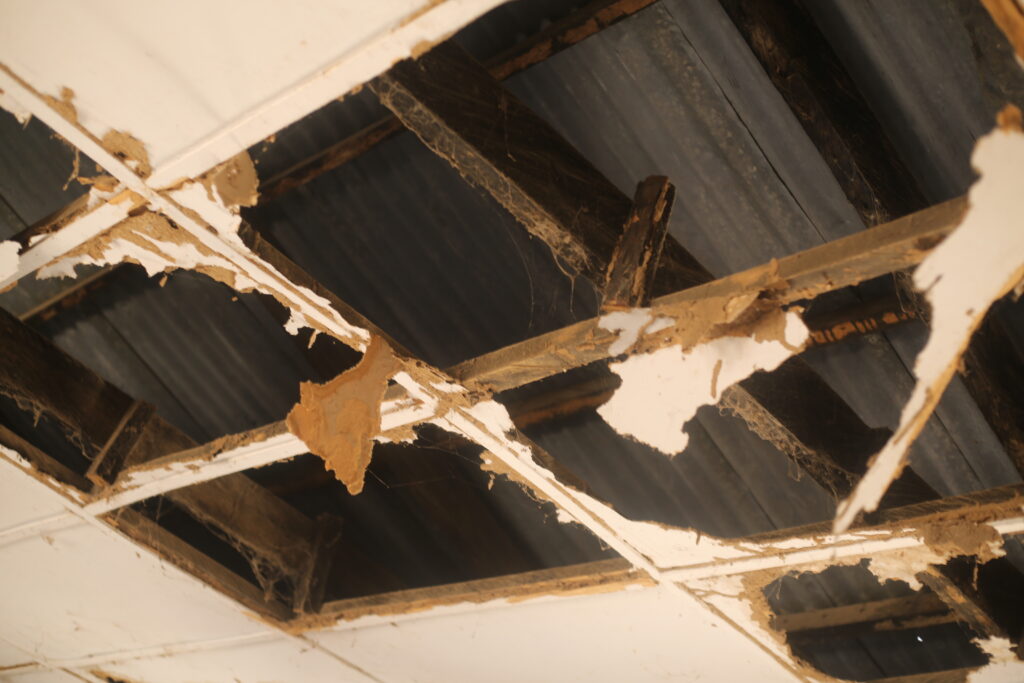
Our reporter observed that the classrooms had a portion of their walls painted black to serve as writing surfaces for the teachers.
ANIMALS TAKE OVER CLASSROOMS
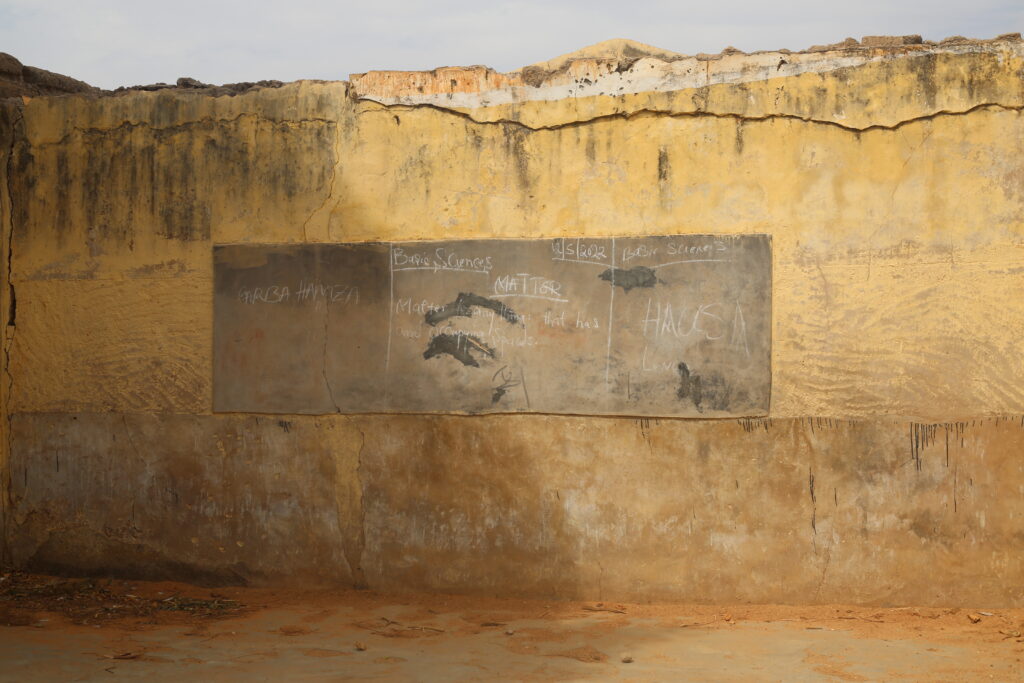
When FIJ visited the Wachiyawa Central Primary School in Takai Local Government Area (LGA), we found classrooms in abysmal conditions.
At the time FIJ arrived on the premises, there were no pupils or teachers. This was an extreme situation compared to what was observed in Kanwa Primary School.
On the board was what appeared to be the last taught lesson, ‘Matter’, a Basic Sciences topic, and its definition read, “Matter is anything that has and occupies spaces [sic]”.
Our reporter arrived at the school on June 6, but the date on the board read May 12, 2022, indicating the board had not been used in over three weeks.
Some of the classrooms did not have furniture or roofs.
Pupils here attended classes on bare floors that had been defaced by nature’s elements and animal excreta.
In addition to three blocks of classrooms, Wachiyawa Central Primary School’s large compound had one structure made of zinc metal sheets and wood that served as classrooms.
We found that there was no floor finishing to give the sandy ground some form of covering. For pupils to learn in this structure, they would need to either stand or sit on the bare sandy ground.
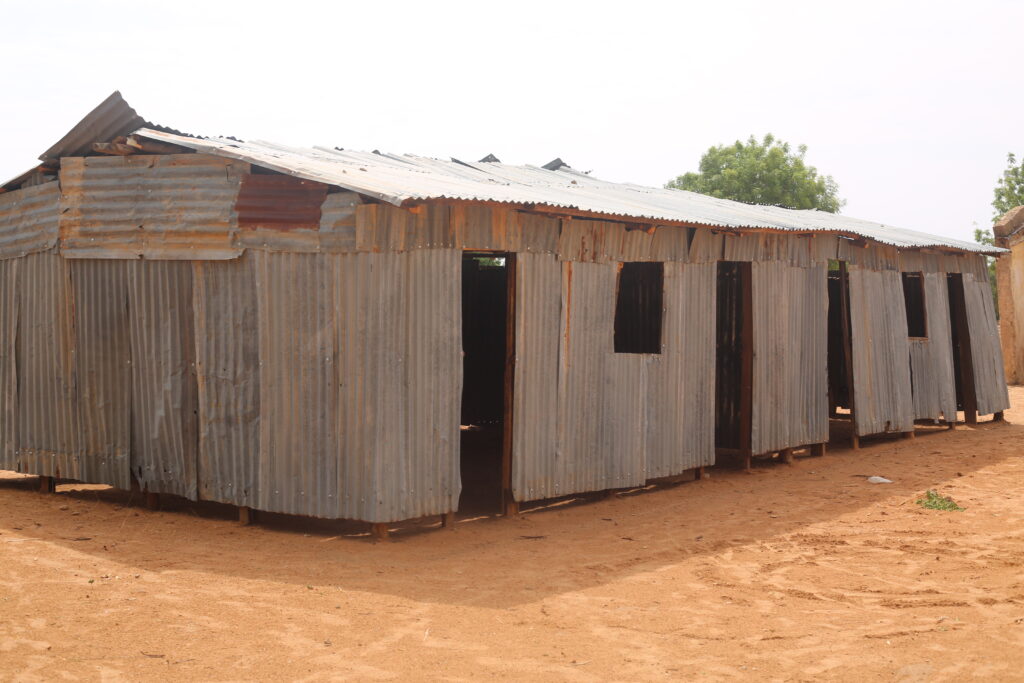
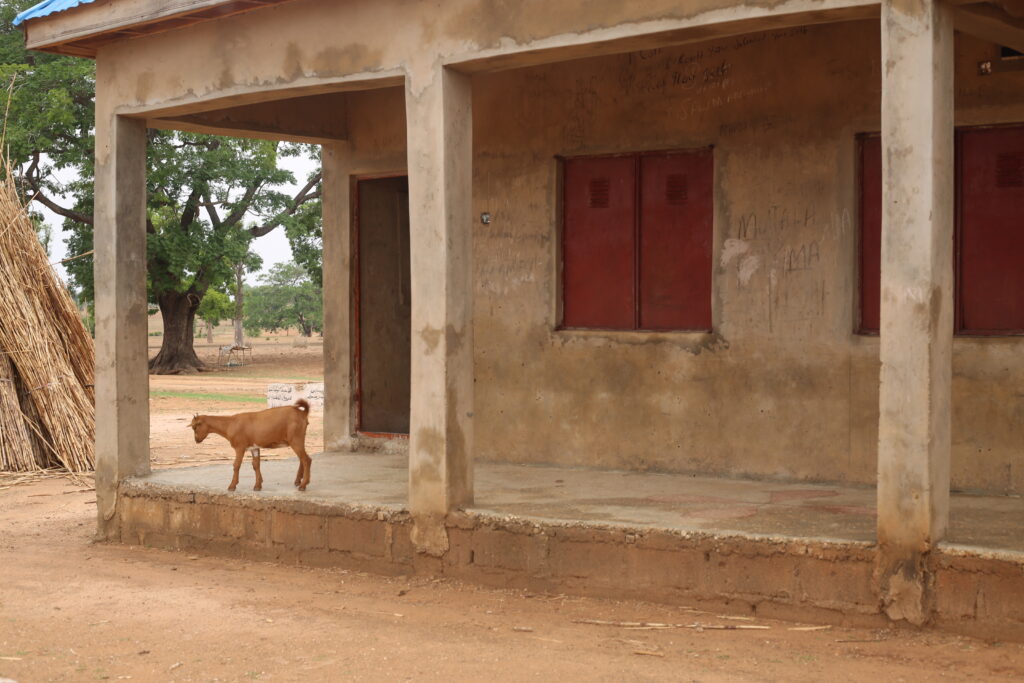
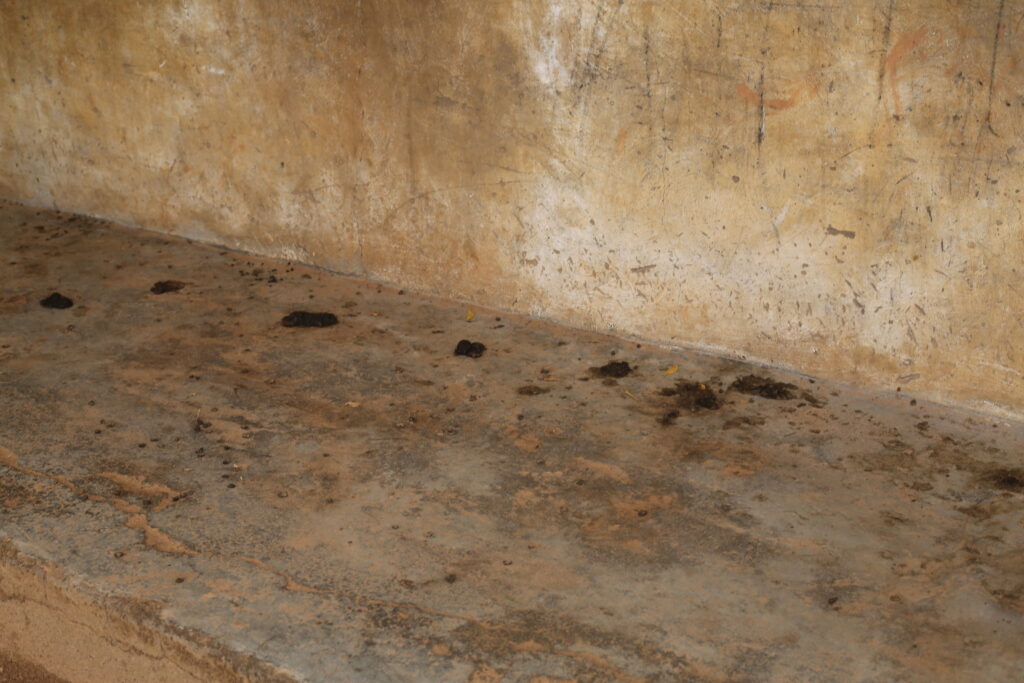
FIJ found that several schools in Takai LGA had little to no academic activity going on and had been taken over by animals.
There were animal faeces deposited on the floors of the building, dried and scattered all over the premises.
Locals told our reporter that Wachiyawa School lacked qualified teachers and good infrastructure, and suffered from irregular closures.
LACK OF TEACHERS, WATER, ELECTRICITY CRIPPLING EDUCATION — TRADITIONAL RULER
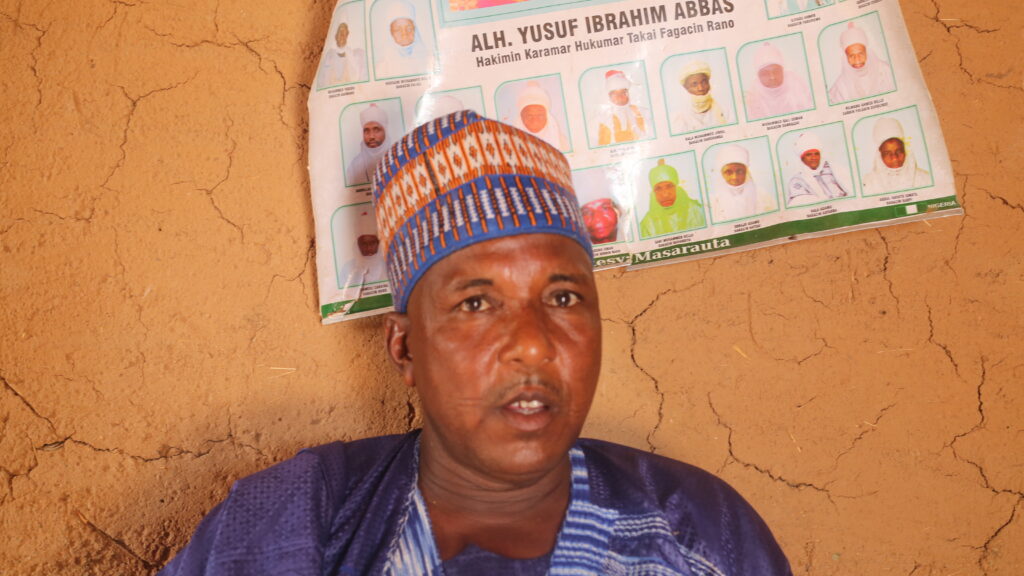
When FIJ spoke with Alhaji Yusuf Ibrahim Abbas, the Fagacin Rano (a traditional title) of Takai LGA, he told us education in the community was suffering from a lack of electricity, water and trained teachers.
He said some of the teachers who used to teach in the various schools there had either retired or died.
Abbas said, “We are facing problems of water scarcity. We have primary schools but we don’t have quality teachers, and most of them have retired, while some are dead.
“The government is not recruiting teachers. We have students but no teachers, and the problem cuts across both the primary and secondary schools.
“In one of the girls secondary schools, there is only principal, teacher and a voluntary teacher. We are trying to upgrade the junior girls secondary school to senior girls secondary school, but there are no teachers.
“We need sufficient professional teachers, which is a challenge to us because if the education system is normalized, everything will be fine.
“We also need our electric poles fixed because for over a year, our poles have been down after falling and nothing has been done about it despite pleas and complaints.”
NIGERIA HAS A BASIC EDUCATION PROBLEM, BUT KANO IS DEALT THE WORST HAND
In 2020, the National Bureau of Statistics (NBS) published its report on women and men.
According to the report, around 10.2 million of Nigeria’s 40.8 million school-age children were out of school. This figure was culled from the 2018 basic education statistics published by the Universal Basic Education Commission (UBEC).
Of this number, Kano State took the lead as the state with the most out-of-school children in the country, at 989,234.
Akwa Ibom State took second place with 581,800, Katsina with 536,122 (third), and Kaduna with 524,670 (fourth).
EDUCATION BUDGET AND POOR RECORD-KEEPING
In late December of 2021, the Kano State House of Assembly passed the government’s 2022 budget into law.
The budget was pegged at N221 billion, higher than the N196 billion budget submitted by Umar Ganduje, the state governor.
Presenting the report, Alhaji Labaran Madari, majority leader of the house, said the committee had recommended for the increase of N24 billion, to cover areas like education, health, and other developmental projects.
“The house has increased the education budget from N49 billion to N55 billion while the Health sector budget is increased from N30 billion to N33 billion,” he explained.
At the time, the Federal Ministry of Education pegged the number of public basic schools in the state at 5,885. This was data that was last updated in 2018.
According to the ministry, there were a total of 7,130 basic schools in the entire state.
However, only 200 basic schools were listed on the Kano State Ministry of Education website.
OLD PROBLEM, NO SOLUTION
According to the State Universal Basic Education Board (SUBEB) in Kano State, the problem of poor primary education is as old as time.
They credited Hans Vischer (Dan-Hausa), a colonialist administrator, for establishing the state’s first western school in 1909.
The Kano SUBEB’s ‘About us’ page reads, “The pupils’ enrolment in 1909 was only 209, and the pupils were drawn from several towns in the Northern provinces, mainly Ilorin and Sokoto. Even though schools were established in more areas of the North like Zaria province, the development of western education in Kano Province remained very slow compared to what was obtained in some other states of the federation.
“In Kano, the negative attitude of parents towards western education, among others, has tremendously contributed towards the problems. The oil boom era helped to provide funds for education expansion but without any meaningful corresponding community participation.
“As a result of the introduction of UPE without proper planning and adequate and effective monitoring and supervision, most of the UPE classrooms were poorly constructed, teachers were haphazardly trained and recruited into teaching and, at the peak of the deterioration of the whole affair, even primary seven pupils were recruited to teach in schools as auxiliary teachers.
“By the late 1970s, the funds from oil began to dwindle, and the funds for the sustenance of the UPE scheme were no longer flowing as regularly as before. The era of the oil boom was over, and things began to crumble very fast.
“Teachers’ salaries were irregular, infrastructures were not taken care of, instructional materials became virtually the responsibilities of the parents who had no interest in western education and were poverty stricken. The primary education system began to collapse. Everywhere, dilapidated classroom blocks were the show of primary schools.
“It was at the peak of this anarchy in our primary education delivery that the first primary schools management board in the state was established in 1986.”
Fast-forward to 2022, and SUBEB has failed to deliver in Kano State.
Independent, public-interest journalism has never been more vital than in times like this when truth is constantly being suppressed. With your support, it will be easier for us to continue speaking truth to power and preserving your right to know.
Make a donation to FIJ today
Donate Now
SUBEB BUILT IMAGINARY SCHOOLS IN IMAGINARY VILLAGES, FAILED TO PERFORM IN 2021
FIJ obtained the 2022 budget of Kano State and inspected its recurrent revenue summary. Our reporter found that in 2021, SUBEB failed to make income from contract withholding tax and recruitment.
According to the available document, the state’s SUBEB did not perform in the year 2021.

Ibrahim Maryam, Kano Open Government Partnership steering committee member, told FIJ that SUBEB failed to award any contracts to improve infrastructure in the state’s schools and also failed to recruit teachers to improve the schools.
In the budget records under code 051700300100, SUBEB spent N8,622,025.85 in 2020, and was handed N2,002,000,000.00 as its approved budget in 2021.
Its 2021 revenue performance between January and August was blank, indicating it did not partake in any activities to generate revenue in the period under review. Despite this, it was awarded N1,002,000,000.00 as its approved budget for 2022.
Maryam told FIJ that in 2015, he and others in the Human Development Initiatives (HDI) monitoring committee, on assignment for the Universal Basic Education Commission (UBEC), worked to review SUBEB for the federal government.
He said when they monitored Kano, they found that contrary to the state SUBEB’s claim of constructing a school in Shayi community, Rana, the committee found that Shayi community did not exist.
He also said, “Most of the contracts awarded were to a few contractors, and they were managed by SUBEB staff. There was no due process.”
Maryam told FIJ that he was surprised to learn that these findings were not published in the ‘Year 2015 Kano SUBEB Action Plan’.
In the action plan made available to FIJ, our reporter found no mention of the anomalies in the state and the shortcomings of the state SUBEB.
‘NO OBJECTION’ RULE: UBEC IS WEAK AND DOES NOT HAVE ENOUGH POWER TO SANCTION SUBEB — HDI
After gathering findings on SUBEB, FIJ called the HDI office to ask why its findings were not made public.
Johnson Ibidapo, Officer-in-Charge of Monitoring, HDI, told FIJ that the HDI submitted its findings to UBEC, but the board in Kano may have encountered some technicalities that prevented them from sanctioning SUBEB.
He said there was room for ‘no objection,’ which allowed SUBEB to relocate projects from where it said they were to where it wanted them to be. This meant that for schools built in non-existent communities, SUBEB could then say it wanted to relocate them, and there would be no oversight.
Ibidapo said, “There is a provision we call ‘no objection’ that state SUBEBs can decide and file. After some time, if it says it has found that the places where it allocated projects, the projects are no longer needed there, it can file for no objection with UBEC, and UBEC approves them.
“This no objection makes them relocate projects from a location to another location within the same state.
“When we found out that some of these projects were non-existent, we were troubled because the monies were approved and they were supposed to construct projects, but they told us that some of these projects were relocated with permission of UBEC.
“That doesn’t cover every project, but we have submitted our report to UBEC, and UBEC has the responsibility of sanctioning errant SUBEBs, even though we have already raised eyebrows about what they call sanctions.
“We felt that some of the things they call sanctions were not stringent enough. Their sanctions include withholding further funds from a board that is not performing, that has accessed funds and did not use it.
“That is not strict enough. What is supposed to happen to the funds that have been mismanaged? But what they tell us is that the UBE act did not give it provision for sanctions.”
He said the state governor was supposed to encourage the anti-graft agencies to investigate the board.
When FIJ called the state SUBEB, the number made available on its website was unreachable. We also sent a mail to the board, but as of press time, it had not been responded to.
The board failed to respect the Freedom of Information Act (FoI) and kept mum over FIJ’s request for comments on its work.
FIJ also made calls to the state ministry of education but received no response. An email sent to the ministry had also not been responded to as of press time.
This report was produced with support from the Wole Soyinka Centre for Investigative Journalism (WSCIJ) under the Collaborative Media Engagement for Development Inclusivity and Accountability project (CMEDIA) funded by the MacArthur Foundation.
Subscribe
Be the first to receive special investigative reports and features in your inbox.


